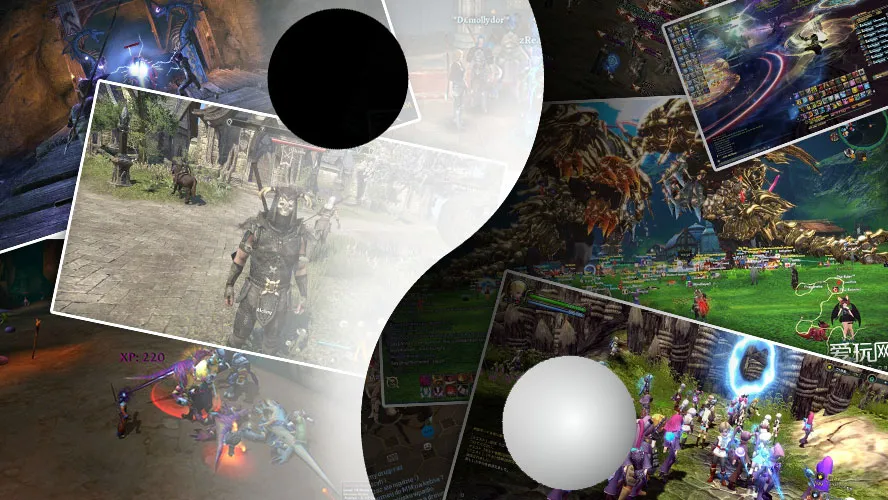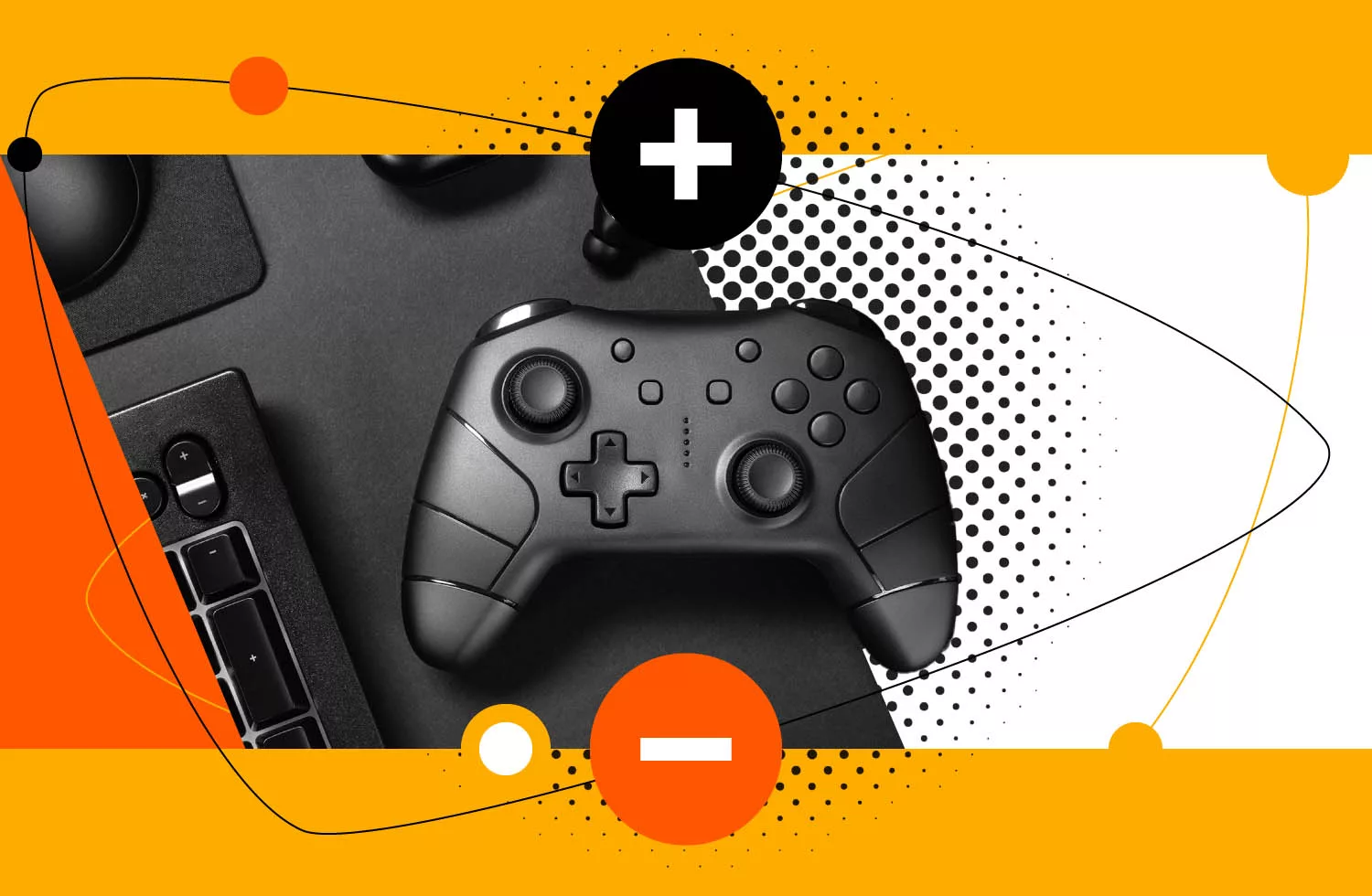
China is currently home to some of the largest video game development companies on the planet.
In 2018, video game revenues in China comprised a quarter of the global gaming industry, further cementing its place at the top table of video gaming.
China’s Relationship with Video Gaming
China’s flirtation with the video gaming industry started back in the 1980s when the first home gaming consoles were hitting the global market. Japan was a dominant force at this stage, with the Nintendo Famicom being one of many popular consoles in East Asia.
Demand in China soared as its own economy began to rise and the middle classes wanted a taste of arcade-style gaming in their own home.
The issue for Japanese giants like Nintendo was that they were being stung with 130% import tariffs on video games and hardware.
This resulted in a “gray” market in China, where console clones were created at a significantly lower cost than the imported Nintendo systems, spawning a fresh wave of console gamers in China during the 1990s, underpinned by the country’s weak intellectual property controls.
As the years ticked by, the Chinese government grew increasingly concerned about the effects of video gaming on its youth, and in June 2000, things came to a head.
The State Council effectively passed a bill that prohibited the production, importation, and sale of games consoles and arcade machines. It wasn’t a blanket ban by any means.
Certain consoles like Sony’s PlayStation 2 and Nintendo’s consoles were still permitted, but with tightening restrictions on the games allowed, it was enough to stop these consoles from developing a loyal user base for Chinese video games.
The change for Chinese video games was when gamers in China took advantage of a key loophole in the gaming ban.
PC games weren’t covered under the legislation and coupled with the rise of the internet and subsequent internet cafes across the country, the next generation of gamers tapped into the most popular PC games instead.
In fact, internet cafes soon became hubs for gamers to share their love for Chinese video games, with local area network (LAN) parties creating the perfect environment for massively multiplayer online games (MMOs) to flourish, as well as role-playing games (RPGs) and even games featuring strong visual novels.
The Companies That Drive Chinese Video Games Today
There are three current superpowers when it comes to Chinese video games. These corporations have blazed a trail for Chinese online games in more recent years and are the brains behind many of the top Chinese video games today.
Tencent
Officially considered the world’s largest company in the video game industry, Tencent is headquartered in Shenzhen and at the start of 2021, it was valued at almost $1 trillion. Its video game publishing division generated $23.79 billion in revenue during 2020.
It’s come a long way from its first game QQ Tang in 2004, with its Honor of Kings multiplayer online battle arena title taking the brand to its greatest heights. The release became the highest-grossing game ever, and the most downloaded mobile game app worldwide.
After developing its own TGP games console, many other Tencent titles shot to notoriety too, including League of Legends and PlayerUnknown’s Battlegrounds (PUBG).
A Tencent subsidiary would develop Call of Duty: Mobile, which achieved over 35 million app downloads within three days of its launch in October 2019.
Perfect World
Perfect World Games, as it was originally known, was devised by founder Chi Yufeng to develop and launch a spate of Chinese video games for the online multiplayer market.
Within three years of its launch, it was publicly listed on the Nasdaq, the leading US stock exchange for fast-growing, innovative tech companies.
Perfect World Games has also helped provide Chinese gamers with access to some of the world’s most popular eSports titles today.
Valve-developed titles such as Counter-Strike: Global Offensive (CS:GO) and Dota 2 have been made available with Perfect World securing a deal as China’s exclusive distributor.
NetEase
NetEase dates back to 1997 when it was founded as part of its investment in the internet and search engine technology. It has since focused on delivering online entertainment services, including the development of online PC and mobile games.
Some of the dedicated Chinese video games from NetEase include Tianxia III, Heroes of Tang Dynasty Zero, Nostos, and Onmyoji.
Its partnerships with world leading video game developers and publishers overseas have also helped strengthen China’s ties to the biggest video and PC games.
NetEase is now a long-time partner of Blizzard Entertainment, bringing the likes of Overwatch and World of WarCraft to market here.
NetEase has even been permitted to develop and oversee Chinese versions of these games to improve the resonance of these titles in the Chinese video games market.
China: A Country Where Gaming Has Long Been Embedded in Its Culture
Gaming is something that Chinese culture has enjoyed for generations on end. For example, Chinese New Year’s games are some of the most popular for families and friends to play together.
The most played is Mahjong, which is played using tiles and is akin to the Western card game “Rummy”.
It also lays claim to some of the oldest board games in the world. The Chinese Go games are said to be one of the oldest board games still played today, dating back over 2,500 years.
It could also be labeled as one of the best Chinese puzzle games, with players tasked with strategizing and surrounding their opponents’ playing pieces known as “stones”.
Even the iconic Chinese Checkers has successfully transcended across the globe, becoming one of the most popular Chinese marble games played outside of mainland China.
On a more light-hearted level, Chinese food cooking games have also proven popular. These casual Chinese online games have opened the eyes of the next generation to Chinese cooking techniques and time-honored Chinese recipes in fun, colorful game scenarios.
The Cultural Divide to Bridge When Publishing Chinese Video Games
China is now the biggest single language market in the world, and with some 242 million-plus iOS devices owned in China alone, it’s easy to see the scale of the opportunity with marketing Chinese video games.
Navigating the cultural differences is vital for game developers to successfully publish new titles that get the same warm response in the Asia as they do in the West, who must take the following into consideration:
- The importance of localization
Where some game developers have tried and failed to bring a title to China that’s been hugely popular in the West, they have shown little consideration for its translation. Some games simply don’t translate directly into Mandarin and resonate with locals.
That’s why major developers like Activision and Valve have partnered with major Chinese video games publishers to ensure games are comprehensively “localized”, both in terms of their content and visual presentation.
It may even require an overhaul of the plotline if it’s something that Chinese gamers would struggle to relate to.
- Freemium games with in-app purchases do work
Understanding how locals prefer to game is also key to ensuring the success of Chinese video games releases. Mobile Chinese gamers are happier making in-app purchases to enhance their gameplay of “freemium” titles.
Chinese casual gamers pay 50% more in-app than players elsewhere.
Ensuring developers make it possible for Chinese gamers to make those in-app purchases using compatible payment platforms is essential. Supercell made this glaring error in 2013 when it launched Clash of Clans here.
The game forced players to make in-app purchases to unlock levels and items via Google Play. Bizarrely, Google Play is not a payment provider that’s synonymous in East Asia, which led to players quitting the game without paying for any add-ons.
- Understand the social and marketing portals that reach China’s gamers
It’s also important for video game developers and publishers alike to understand how best to market new titles to Chinese gamers. Tencent is not just a leading video games developer, it’s also the leading social media platform in China.
In terms of driving organic exposure, Baidu is the king of search engines driving four-fifths of search traffic across mainland China.
In terms of mobile news and entertainment, game releases are also typically announced on ByteDance, the parent company of the TikTok platform that’s gone viral in the West.
However, as recently as last year, the Chinese government continues to take a dim view of Chinese video games. Beijing placed stringent time limitations on how long Chinese youngsters can spend playing games – only three hours a week for many.
Despite this hostility, the very companies we listed earlier in this article continue to fly the flag for Chinese video games.
These are the studios that understand China’s gaming market best, but other studios can overcome the cultural and communicative roadblocks that exist to successfully publish and operate new video games in China.










